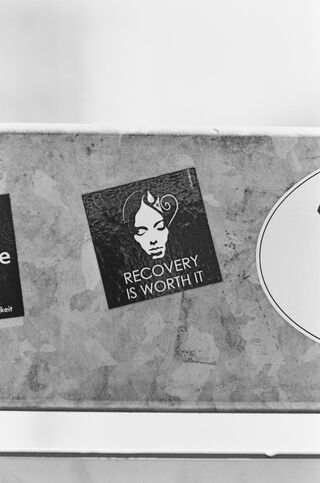Child Development
The Role of Dissociation in Surviving Childhood Abuse
Seven tips to staying present.
Posted August 7, 2022 Reviewed by Jessica Schrader
Key points
- Dissociation is not a defense mechanism we use consciously when experiencing childhood abuse.
- While dissociation kept many of us alive during abusive experiences as children, it can wreak havoc in our lives moving forward.
- The first step to letting go of this defense mechanism is knowing that we used it and understanding the role it served at the time of the abuse.
Dissociation is not a defense mechanism we use consciously when experiencing trauma. Our brains find creative ways to survive events that leave us feeling frightened, out of control, and helpless. Dissociation is "the experience of detaching from reality. Dissociation encompasses the feeling of daydreaming or being intensely focused, as well as the distressing experience of being disconnected from reality."

The Role of Dissociating in Surviving Childhood Abuse
Earlier this week, news broke about actor Anne Heche's devastating car crash. Several stories highlighted her childhood abuse history, including a clip from an interview Heche did with Barbara Walters in 2001, in which Heche told Walters that she was raped by her father and that she developed an “alter-ego” to push away any feelings of shame and to keep the incest memories a secret from herself.
Twenty years ago, the topic of childhood sexual abuse or dissociation was rarely discussed or understood. Heche’s explanation of how she coped with her abuse potentially reduced shame for survivors who were blaming themselves for not remembering what was done to them.
I began to understand the role of my dissociative tendencies and how they helped me stay sane during my abuse within months of leaving my childhood home. As the memories of my abuse surfaced, I also remembered how I left my body and where I stored the memories of what was done to me. I have met several clients who have described thinking things like, “This cannot be happening,” or imagining that “my body left the moment and I watched myself being assaulted.” While dissociation kept many of us alive during abusive experiences as children, it wreaks havoc in our lives moving forward. The challenge in recovering from trauma is to learn how to tolerate feelings and memories as they surface in the present. Finding ways to establish a sense of safety when we are triggered is difficult and it takes time. Many of us struggle to accept that we used dissociation to manage overwhelming experiences because it does not allow us to fully retrieve who, what, when, where, and why someone abused us. According to the DSM-V, around 90% of individuals with dissociative symptoms were also abused as children, according to DID-Research.org.
Making Sense of This Defense Mechanism
The first step to letting go of this defense mechanism is knowing that we used it and understanding the role it served at the time of the abuse. One client who lived through incest told me, “If I had not pretended that the abuse was being done to someone else I would have ended my life years ago.” She went on to explain that her brain and heart could not process that her own dad would hurt her in such a terrible way. Finding ways to move out of the past and keeping ourselves grounded is the next step to reclaiming what was lost and grieving for our younger selves who felt abandoned, betrayed, and at times ruined. Part of the recovery process is staying in our bodies when we feel triggered or unsafe. The smallest thing can activate old feelings of fear and unsafety. For example, I spoke with one client who lost moments in her car driving after she drove by her childhood home. She told me that as she started to remember her mother physically abusing her she no longer felt present in the car. In one session she told me, “I have no idea how I got home after I started having that flashback.”
Ironically, losing time and becoming dissociative can inadvertently cause possible danger in the present. If we find ourselves driving in a car while leaving our bodies, we can get lost or, worse, get into a car accident. The most common complaint clients report is that they feel ill-equipped to handle intimacy or connection with the people they choose to be in relationships with as adults. For years I cringed at the thought of someone showing physical affection towards me. Part of the recovery process requires us to find ways to trust ourselves and know that not everyone we meet will be an abuser or someone who wants to hurt us. Being able to stay in our bodies and learn how to trust our instincts with people becomes an integral part of the work in therapy. Through the years I have learned several strategies that have helped many of my clients and myself to stay grounded when our bodies and hearts want to dissociate.
Seven Tips to Staying Grounded

1. Take a moment to check in with yourself and feel your body on the ground. Wiggle your toes and ask yourself if there is anything happening in that moment that puts you in danger or risk.
2. Go for a mindful walk. Choose a place that has sounds of nature that provide you with comfort. Walk on a beach or find a trail in the woods that makes you feel happy.
3. Grab some ice cubes and focus on the sensations in your hands as you hold them. Once you feel more present, go back and check in with the interaction that just happened that made you want to disconnect.
4. Practice gratitude. Think about your connections and how they are different from the people who caused you harm.
5. Reach out to others. Text a friend, even if you do not want to talk about the flashback you just had. Remind yourselves that you are loved and that there are people in this world who have your back.
6. Stay active. When you feel like your body and mind are filling up with despair or fear or you want to disconnect, do the opposite. Hop on your Peloton. Go for a walk. Take a yoga class.
7. Make the best of a situation that at times feels impossible to manage. Use humor. Grab a hold of your cat or dog and let your pet love you. Watch a show that makes you laugh. It is OK to have fun or be proud of what you accomplished, even on the days when you want to give up. I do that every single day, sometimes multiple times an hour during difficult times.
References
Types of Trauma | DID-Research.org


